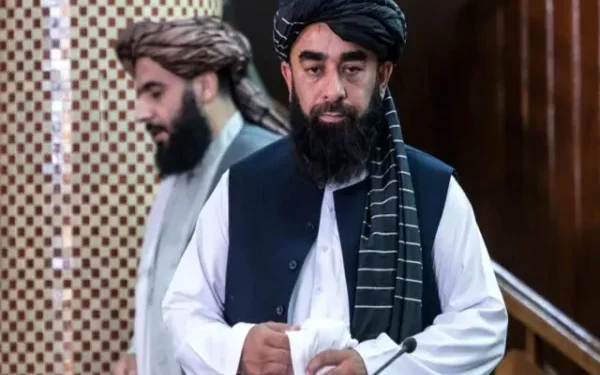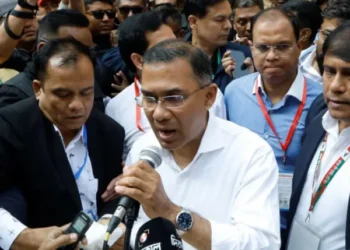Introduction: A Crucial Step Towards Stabilizing Pak-Afghan Relations
In a major diplomatic breakthrough, Foreign Minister Ishaq Dar is set to visit Kabul on April 19, marking the first official visit by a Pakistani foreign minister to Afghanistan in three years. His trip is seen as a significant move towards mending strained Pak-Afghan relations, particularly over Pakistan’s long-standing security concerns regarding the Tehrik-i-Taliban Pakistan (TTP), a banned terrorist organization.
The visit comes at a time when Islamabad and Kabul are seeking to reset their bilateral ties, following months of tensions rooted in cross-border security issues and the Afghan Taliban’s alleged reluctance to curb TTP activities.
Background: Years of Strained Relations
Relations between Pakistan and Afghanistan have historically been complex, shaped by geopolitics, security issues, and ethnic dynamics. However, after the Taliban’s return to power in August 2021, tensions escalated significantly.
Pakistan had hoped the new Afghan rulers would clamp down on TTP militants who have repeatedly launched attacks inside Pakistan. Instead, Islamabad felt that Kabul was either unwilling or unable to act decisively against these groups. This led to a freeze in high-level diplomatic engagement, and relations deteriorated throughout 2022 and 2023.
The Turning Point: Mohammad Sadiq Khan’s Visit to Kabul
Sources close to the matter revealed that a recent visit to Kabul by Special Representative Mohammad Sadiq Khan for a meeting of the Joint Coordination Committee helped pave the way for the current thaw. It was during these discussions that the Taliban leadership showed, for the first time, a “seriousness” in addressing Pakistan’s security concerns regarding TTP activities.
As a direct outcome of this progress, Islamabad decided to send Foreign Minister Ishaq Dar to Kabul, a visit that symbolizes not only diplomatic thaw but also the possibility of sustained cooperation.
Foreign Minister Ishaq Dar’s Agenda in Kabul
During his visit, Ishaq Dar is expected to:
- Press the Taliban leadership to take tangible action against TTP elements operating from Afghan soil.
- Discuss broader bilateral cooperation, including border management, trade, and refugee issues.
- Explore security collaboration to prevent cross-border terrorist attacks.
- Initiate talks on trilateral and multilateral security and economic frameworks involving neighboring countries.
The fact that the Taliban government has shown a willingness to engage on these sensitive issues is being viewed as a positive development by observers in Islamabad.
Resumption of High-Level Contacts Welcomed
Confirming the development, Special Representative Mohammad Sadiq posted on social media that the “resumption of high-level contacts with Kabul after a long break is welcome.” He emphasized that Pakistan aims to work closely with Afghanistan to reinvigorate various regional cooperation platforms.
Sadiq outlined plans for reactivating several trilateral and multilateral mechanisms, including:
- Near Neighbor Plus Russia format
- Pakistan-China-Afghanistan Trilateral Dialogue
- Pakistan-Uzbekistan-Afghanistan Trilateral Mechanism
- Pakistan-Iran-Afghanistan Cooperation Forum
Such initiatives are vital for fostering regional connectivity, enhancing security coordination, and promoting economic integration in South and Central Asia.
Role of China and Regional Cooperation
In a related development, Mohammad Sadiq held an online meeting with China’s Special Representative for Afghanistan, Yu Xiaoyong, to discuss the revival of the trilateral dialogue involving Pakistan, China, and Afghanistan.
China, which shares a narrow border with Afghanistan through its Xinjiang region, has strategic interests in ensuring stability in Afghanistan. Beijing has long advocated for a peaceful and cooperative approach involving Afghanistan’s neighbors to promote security and economic development.
The upcoming proposal to discuss this trilateral revival with Kabul reflects growing momentum towards greater regional collaboration.
Beyond Kabul: Ishaq Dar’s Planned Visit to Dhaka
Following his Kabul trip, Foreign Minister Ishaq Dar is scheduled to visit Dhaka on April 22. This will be a historic visit, as no Pakistani foreign minister has visited Bangladesh since 2012.
The visit to Dhaka signals Islamabad’s broader diplomatic outreach to South Asia, seeking to reset ties with Bangladesh, a country with which Pakistan shares deep historical and cultural ties but also a complicated past stemming from the 1971 war.
Building stronger ties with Bangladesh could open new avenues for trade, cultural exchange, and regional cooperation, providing Pakistan with broader strategic advantages in South Asia.
Expanding Cooperation with Russia: Another Diplomatic Milestone
In addition to the Afghan and Bangladeshi engagements, Pakistan is also strengthening ties with Russia. In Islamabad, Foreign Minister Ishaq Dar recently met with Russian Deputy Foreign Minister Sergei Ryabkov, where the two sides agreed to advance a long-term, multi-sectoral partnership.
The meeting focused on:
- Expanding trade and energy cooperation.
- Enhancing regional stability efforts.
- Promoting multilateral collaboration in global platforms.
Strategic Dialogue at the ISSI
Following the high-level meeting, the Institute of Strategic Studies Islamabad (ISSI) hosted a roundtable discussion with Deputy Foreign Minister Ryabkov. The session, attended by Ambassador Sohail Mahmood (Director General, ISSI) and Ambassador Khalid Mahmood (Chairman BOG), delved into:
- Arms control and disarmament strategies.
- Regional security challenges.
- Future avenues for Pakistan-Russia cooperation.
This growing diplomatic engagement with Russia reflects Islamabad’s multipolar foreign policy approach, balancing relations with both Western and Eastern powers.
Global Peace and Kashmir: Pakistan’s Consistent Stance
Addressing the 3rd UN Peacekeeping Ministerial Conference, Ishaq Dar emphasized that the resolution of the Kashmir dispute remains crucial for ensuring global peace and stability. Pakistan has consistently maintained that without a just resolution of the Jammu and Kashmir conflict, durable peace in South Asia would remain elusive.
The reiteration of this stance on such an important international platform underscores Pakistan’s commitment to highlighting the Kashmir issue globally.
Bilateral Economic Discussions with Afghanistan
In a separate meeting, Acting Afghan Minister of Commerce and Industry Haji Nooruddin Azizi called on Foreign Minister Dar. The two leaders discussed:
- Expanding bilateral trade.
- Addressing cross-border transit issues.
- Facilitating investment opportunities in sectors such as agriculture, mining, and transport.
Improving economic ties could help both Pakistan and Afghanistan achieve greater economic resilience, particularly amid regional uncertainties.
Conclusion: A New Dawn for Pakistan’s Regional Diplomacy
The upcoming visit of Foreign Minister Ishaq Dar to Kabul, followed by his visit to Dhaka, coupled with strengthened engagement with Moscow, marks a significant uptick in Pakistan’s regional diplomacy.
The Taliban’s readiness to address concerns regarding TTP activities is a positive signal, though concrete actions will be the true test of Kabul’s commitment. The simultaneous pursuit of stronger ties with Afghanistan, Bangladesh, and Russia shows Islamabad’s intention to diversify its diplomatic and economic partnerships in a rapidly changing global environment.
If these efforts bear fruit, Pakistan could find itself better positioned both regionally and globally—enhancing its security, boosting its economy, and advancing its strategic interests.

























